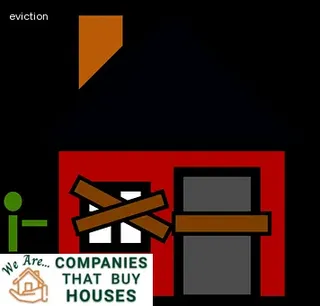Maryland landlords must understand the legal guidelines for handling tenant abandoned property. In accordance with state law, tenants who have vacated a rental unit without proper notice and without emptying their belongings must give the landlord written permission to dispose of or sell any remaining items.
If written permission is not given, the landlord must store all items in a secure area for 30 days, during which time the tenant may collect them. If the tenant fails to retrieve their property within this 30 day period, the landlord may dispose of or sell it at his or her discretion.
In some cases, landlords may be able to recover costs incurred from storing and disposing of abandoned property by deducting these expenses from the security deposit. Landlords should also be aware that they cannot keep any money made from selling abandoned items; laws dictate that proceeds are to be paid into a court registry and held until they can be claimed by the tenant.
It is important for Maryland landlords to stay up-to-date on these laws as well as local regulations in order to ensure compliance when dealing with tenant abandoned property.

Maryland landlords need to be aware of the procedures for properly handling abandoned property. In cases where a tenant abandons a rental unit, the landlord must take steps to protect their rights while adhering to state law.
They are required to provide written notice with specific language and deliver it by certified mail to the tenant’s last known address or in person. A copy of this notice must also be posted on the premises of the rental unit in question.
If the tenant does not make contact within five days, then the landlord is free to remove any personal items left behind and store them off premises for up to 30 days. During this period, they can attempt to contact the tenant and arrange for pick up or disposal of these items.
If no contact is made, then they can dispose of these items as long as they follow all relevant laws regarding abandonment and notification. There may also be additional local laws that apply in certain jurisdictions so landlords should always ensure they are familiar with all applicable regulations before proceeding with any action related to abandoned property.
Failure to properly claim and handle abandoned property can have serious legal implications. Maryland landlords are responsible for taking inventory of tenant abandoned property and following a strict set of laws surrounding this issue.
If a landlord chooses not to comply with the law, they may face criminal charges or substantial fines. In some cases, a landlord may be held legally liable for the possessions of their former tenants if they fail to store them securely.
Additionally, landlords may be required to pay storage costs associated with any unclaimed property that is still in possession of the tenant when they vacate the premises. It is important for Maryland landlords to understand their rights and obligations when it comes to dealing with abandoned property, as neglecting these laws could result in serious financial penalties or even criminal prosecution.

In certain cases, Maryland landlords may be exempt from the abandoned property laws. Tenants who are on active military duty or are members of their families, as well as tenants receiving medical treatment that requires them to leave their residence, may be exempt from this law.
In addition, if a tenant is incarcerated or has been admitted to a hospital for an indefinite period of time, the tenant’s belongings may not be considered abandoned and may not need to be removed by the landlord. Additionally, if there is a court order issued granting permission for the tenant's possessions to remain in the rental unit after they have vacated it, then those items would also not be considered abandoned.
Finally, if a tenant has notified their landlord prior to leaving that they will return and reclaim their property at some point in the future, then the property is not considered abandoned under Maryland law.
One of the biggest issues that Maryland landlords need to be aware of is abandoned property laws. As a landlord, it is important to have strategies in place to minimize the risk of tenant abandoned property.
These strategies can include including a clause in the lease agreement that outlines what happens with tenant abandoned property, conducting regular check-ins on rental units and providing an itemized list for tenants detailing what items must be returned at move out. Additionally, landlords should also have clear communication with their tenants regarding expectations for any moved-out or left behind items and create policies to address when personal items are left behind.
Making sure that all parties involved understand the consequences associated with leaving personal possessions behind will help ensure compliance and reduce the potential financial burden associated with tenant abandoned property.

Abandoned property laws in Maryland can be confusing for landlords, which makes it important to understand the terminology associated with them. First, abandonment is the act of a tenant leaving their rental unit without notifying their landlord and ceasing all payment obligations.
Abandonment also applies if tenants have missed rent payments and do not respond to a written notice after being served. Second, while abandonment is the legal process of vacating a unit, surrender is when tenants sign an agreement officially relinquishing their tenancy rights.
Lastly, reentry is when landlords regain possession of the rental unit by changing locks or other means without having to go through the court system. Understanding these terms is essential for Maryland landlords so they are aware of the steps that need to be taken in order to reclaim abandoned properties according to state laws.
In Maryland, there are certain cases when eviction can be delayed due to improper notice. Landlords must understand the requirements for providing proper notice and recognize when a tenant may have a valid reason for not leaving their rental property in the required amount of time.
Maryland's landlord-tenant law requires that tenants receive at least 30 days of notice before an eviction action can be brought against them. In some cases, such as when a lease has been violated, landlords may provide less than 30 days of notice and still be able to start the eviction process.
However, if the tenant is able to prove that they did not receive proper notice and that they would have stayed longer had they known about the upcoming eviction, then the court may delay the eviction proceedings. If a landlord fails to provide sufficient notice prior to evicting a tenant, it could result in significant delays in collecting back rent or being able to re-rent their unit.
It is important for landlords to understand their obligations under Maryland’s abandoned property laws in order to keep their rental business running smoothly and ensure that evictions are carried out properly.

When it comes to Maryland's abandoned property laws, landlords need to be aware of what officially constitutes as “abandoned.” The tenant must have the intent to give up their occupancy rights in order for the property to be considered abandoned.
It is important for landlords to distinguish between a tenant who has left voluntarily and one who has been evicted or removed by court order. A lease agreement must be terminated before a landlord can consider a property abandoned, and the tenant must make no attempt at payment or contact within 15 days of vacating the premises.
If a landlord suspects that a tenant has abandoned leased premises, they should first notify them in writing via certified mail. This allows the tenant an opportunity to respond and confirm whether they have vacated their rental unit voluntarily or not.
When a tenant vacates their rental property in Maryland, they may leave behind some personal possessions. Landlords must follow certain procedures for the disposal of these items, as outlined in state law.
Items that can be used or sold should first be offered to the tenant or any other person legally responsible for removal. If no one claims them, then the landlord may go ahead and sell the items at a public auction.
Another option is to give the items away or donate them to charity. If an item cannot be resold or donated, then it must be disposed of properly through a licensed waste management company.
It’s also important to adhere to specific storage and notice requirements when dealing with abandoned property. This includes providing written notice to tenants before disposing of their belongings and maintaining records of all transactions related to disposal.
Maryland landlords need to understand their obligations when it comes to disposing of abandoned property left behind by tenants.

When it comes to abandoned property laws, Maryland landlords need to know that there can be serious penalties for not complying with the regulations.
Failing to properly store or dispose of the goods left behind by a tenant can result in hefty fines and even jail time for those who do not follow the rules.
In addition, landlords may be held liable for any damage caused by the improper handling of abandoned items, such as contamination of surrounding land due to hazardous materials or personal injury resulting from unsecured premises.
It is vital that landlords are aware of their legal obligations when dealing with abandoned property in order to avoid costly penalties and potential criminal prosecution.
The importance of a thorough tenant application process for Maryland landlords cannot be overstated. It is vital for landlords to conduct due diligence before entering into a rental agreement with a prospective tenant.
By conducting background checks and verifying references, landlords can ensure that the tenant has the financial means to pay rent and follow the rules regarding occupancy. Additionally, having an up-to-date tenant application form allows landlords to proactively address any issues that may arise during tenancy and to be aware of any restrictions on their ability to take action against the tenant in the event of default or abandonment.
A comprehensive application process will also provide landlords with an understanding of their rights and responsibilities under Maryland’s abandoned property laws, which dictate how they should dispose of items left behind by tenants who move out without notice. Taking the time to properly screen potential tenants can save Maryland landlords from costly legal battles and loss of income down the road.

When drafting a comprehensive tenancy agreement, it is essential for Maryland landlords to be aware of the state's laws and regulations concerning abandoned property. Knowing these rules can help ensure that any potential disputes are dealt with in an appropriate manner.
All landlords should make sure that their lease agreements clearly stipulate which party is responsible for the removal of abandoned property from the premises. Additionally, it is important to have a clause that outlines what will happen if a tenant abandons their belongings on the property after vacating.
It is also important to include language about who owns the abandoned property and how long it must remain on the premises before being disposed of or sold. Finally, landlords should consult with legal counsel to ensure that all clauses are compliant with the applicable state laws and regulations.
Maryland landlords need to be aware of the laws regarding returning security deposits when tenants abandon their rented property. In the state of Maryland, a landlord must return the security deposit within 45 days after the tenant moves out or provide written notice of deductions.
The landlord must also list all deductions from the security deposit and provide proof of them to the tenant. If deductions are taken from the security deposit, any remaining balance must be refunded to the tenant.
Additionally, if there is no forwarding address for the tenant, then a landlord must mail the security deposit to that address via certified mail with a return receipt requested. This is true even if it has been more than 45 days since the tenant moved out.
Lastly, landlords should keep detailed records of all transactions involving rental properties and security deposits in order to comply with state laws.

It is essential for landlords in Maryland to ensure rent is collected from tenants in a timely manner. This helps to ensure rental income is consistent and can be used for necessary expenses like maintenance and taxes.
Late payments can lead to cash flow problems, so it’s important to have a system in place that encourages prompt payment of rent. It may also be beneficial to set up a late fee policy that applies when rent isn’t paid on time; this provides an additional incentive for tenants to pay their rent on time.
Landlords should also have an established procedure for collecting rent in the event a tenant abandons the property, as laws regarding abandoned property vary throughout Maryland. Understanding these laws and having clear expectations with tenants can help landlords collect the rent they are owed in a timely manner.
Landlords in Maryland have certain responsibilities when it comes to their rental properties, including providing proper maintenance and care. This includes making sure the property is kept safe and secure from vandalism, as well as ensuring that all common areas are clean and well-maintained.
Additionally, landlords must also be aware of abandoned property laws in Maryland, which include specifics such as the notice period required to vacate a property and the type of notice that must be given. Landlords should also be familiar with the process for disposing of abandoned items on their properties, including the right to sell or donate those items.
Knowing these laws can help ensure landlords are compliant with state regulations while also protecting their investment.

Maryland landlords have an important responsibility when it comes to granting and restricting access to rented properties. The abandoned property laws in Maryland are complex, and understanding the provisions is essential for landlords to ensure that they are in compliance with the law.
When a tenant leaves a rental property without properly notifying the landlord, or without vacating all of their possessions, the property is considered to be abandoned. Landlords must adhere to state regulations which outline how they must handle the inventorying, disposing and storing of the tenant’s belongings.
It is also important that landlords know that they cannot enter a rental unit until after three days have passed since the tenant vacated; if they do so earlier than this, this can be considered as trespassing according to Maryland law. Additionally, landlords are prohibited from disposing of any property left behind by a tenant before 30 days have elapsed; failure to comply with this regulation could result in hefty fines or other legal action being taken against them.
Knowing what is expected of them when it comes to granting and restricting access to rented properties is key for Maryland landlords who want to remain compliant with state laws.
In Maryland, landlords need to be aware of their rights and responsibilities when it comes to subletting. Generally, tenants may sublet a property with the landlord's written permission.
If tenants wish to sublet without written permission from the landlord, they must provide the tenant or lessee with a new lease agreement outlining terms and conditions for the new tenancy agreement. Landlords must also ensure that any new tenants are approved through a credit check and background screening process before entering into a contract.
Additionally, landlords should also be aware that if an existing tenant vacates without proper notice or fails to pay rent, they may have to take legal action such as filing an eviction suit in order to regain possession of the property. With regards to abandoned property laws, tenants who abandon their rental unit are still responsible for paying any unpaid rent that is due under their original lease agreement.
In such cases, landlords can pursue recovery of the unpaid rent through legal means such as small claims court if necessary.

As a Maryland landlord, it is important to be aware of the state's requirements for providing notice of termination of tenancy agreements. Typically, landlords must give tenants a written notice in person or by mail at least thirty days before the end of their lease.
However, if there is an unpaid rent or other breach of the lease agreement, only three days' notice may be required. In some cases, the tenant may have abandoned the property before the termination date specified in the notice and landlords are then responsible for taking certain steps, such as notifying law enforcement and filing with the court to reclaim possession of their rental property.
It is important to understand these laws and take all necessary actions to protect your rights as a landlord when dealing with abandoned properties.
Under Maryland law, an abandoned property may be considered so after a period of thirty days. After this time has elapsed, the landlord is responsible for notifying the tenant in writing that they have failed to pay rent or otherwise indicate that they intend to continue occupancy of the premises.
This notice must also inform the tenant that they have seven days to contact the landlord before the property is deemed abandoned and subject to disposal by the landlord. Once the seven-day period has passed without communication from the tenant, then the landlord may take possession of all personal property left in or on the premises, as well as any security deposits or other accrued payments due from the tenant.
Landlords should note that failure to properly handle an abandoned property situation can result in legal ramifications. It is important for landlords to be familiar with their obligations under Maryland law when dealing with abandoned property.

In Maryland, landlords must follow state laws when it comes to the disposal of tenants' belongings after eviction. According to state law, landlords must keep tenants' abandoned belongings for at least 30 days before disposing of them.
The landlord must allow the tenant access to the property during this time in order to reclaim it. After 30 days, the landlord may dispose of any unclaimed property in any manner they choose.
The landlord must provide written notice of their intentions and list a detailed inventory of the abandoned items. They are also responsible for ensuring that the tenant has received proper notification about the property and its disposition and that any applicable fees have been paid.
Landlords should be aware that failure to comply with these regulations could lead to legal action against them, so it is important that they adhere to all applicable laws when dealing with abandoned property in Maryland.
In Maryland, landlords must follow certain procedures when removing a tenant. The first step is to serve the tenant with a written notice of eviction, which must include the reasons for eviction and give the tenant an opportunity to remedy any issues.
If the tenant does not comply with this notice, the landlord can then file an action for possession in district court. The court will then issue a writ of restitution that orders the tenant to vacate the premises within three days.
If the tenant fails to do so, a law enforcement officer may be called upon to remove them from the property. Landlords also have the option of seeking compensation through abandonment laws if a tenant leaves personal belongings behind after vacating.
These laws allow landlords to dispose of unclaimed items without liability as long as they follow proper protocol and provide notifications to tenants.
Evicting someone from your house without a lease in Maryland requires following the state’s abandoned property laws. According to the laws, landlords must provide tenants with written notification of their intention to terminate the tenancy and reclaim possession of their property.
This notification must be delivered at least 30 days prior to the eviction date. After that period, if the tenant has not responded or vacated the premises, landlords can pursue legal action by filing an Unlawful Detainer Action in court.
Landlords must also follow local regulations and post appropriate notices on the dwelling prior to filing a complaint. If successful, they will receive an Order for Possession which will allow them to regain control of their property and remove any remaining possessions left behind by the tenant.
It is important that landlords familiarize themselves with Maryland’s abandoned property laws as well as county specific regulations in order to ensure a successful eviction process without having a lease agreement in place.
In Maryland, landlords must abide by the state's abandoned property laws. These laws dictate how long a landlord has to give their tenant to move out of the property.
Generally speaking, a landlord in Maryland must give their tenant at least sixty (60) days written notice of their intention to terminate the tenancy. The sixty-day period begins on the day after the notice is received and ends on the last day of the month following when it was given.
It is important for landlords to understand that they cannot evict a tenant without providing this minimum notice and they are not allowed to shorten or waive this requirement. If a landlord attempts to do so, they could face criminal or civil penalties.
Additionally, if a tenant does not vacate within the allotted time frame, then landlords may be able to pursue an eviction action against them.
Filing a tenant hold in Maryland is relatively straightforward and requires the landlord to follow certain steps. First, the landlord must give written notification to the tenant of their intent to file a tenant hold.
This notice should include the specific reason for filing and the amount owed by the tenant. Once this notification has been provided, it's important for landlords to contact their local district court for further instructions on how to proceed with filing.
In most cases, the procedure involves submitting a complaint along with other supporting documents such as a copy of the lease agreement and any relevant invoices or receipts. It's also important that landlords keep records of all communication between themselves and the tenant during this process.
Finally, landlords may need to provide proof of service showing that they delivered notice of their intent to file against a tenant in order to complete this process. Following these steps can help Maryland landlords successfully file a tenant hold in accordance with state law.